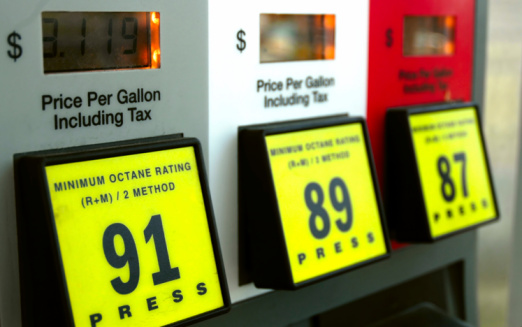It's Easier Here.
Leith Cars Blog

If you haven’t noticed, gas prices jumped more than 50 cents in some places last week, and as they inch closer to $2 a gallon, we have to wonder what’s making them rise. So, we did some research. Here’s what we learned:
How gas are prices determined
The price of gasoline is made up of four factors: taxes, distribution and marketing, the cost of refining, and crude oil prices. Of these four factors, the price of crude oil accounts for nearly 70% of the price you pay at the pump, so when they fluctuate (as they often do), we see the effects. Crude oil prices change depending on the supply available in the market, and the demand for that supply.
What affects the demand of crude oil?
As countries around the world industrialize and grow, the demand for crude oil rises. Since 1980, the demand for crude oil has increased each year, and that trend is predicted to continue well into 2030.
On a smaller scale, demand for gasoline changes depending on what’s happening here at home. Big travel holidays like Thanksgiving or Christmas will spike the prices, while cold or snowy weather that prevents or discourages travel will lower them.
What controls the supply of crude oil?
More accurately, who controls the supply?
The Organization of Petroleum Exporting Countries (OPEC) is a cartel made up of 12 countries that collectively control 78% of the world’s known oil supply. The only major oil producing countries not in OPEC are Russia, Canada, and the United States. Because OPEC controls so much of the supply, they have a tremendous amount of influence over the price – even if the crude oil is produced here in the United States.
If the members of OPEC want global oil prices to go up, they can lower the supply by selling less to the market. If they want the price of oil to fall (lowering profits for their competitors), they can flood the market with oil. Other manufacturers in Canada, Russia, and America can do the same thing, but they have a much smaller effect. Whoever controls the most oil has the strongest ability to manipulate its price.
So what does it all mean?
In summary, what you pay at the pump is mostly determined by the price of crude oil; the price of crude oil fluctuates based on supply and demand; the demand of oil fluctuates based on many factors, but is increasing overall due to industrialization; and, more than three quarters of the oil supply is controlled by OPEC.
So, the price you pay at the pump depends on the supply in the market, which is in the hands of OPEC. Why did gas prices go up last week? We’ve heard reports that refineries were shutting down for inspection, and that more people are traveling because the weather is starting to warm up. But, we can’t be sure what really caused it. All we know is that the price per barrel rose more than $3 in a week (that’s per barrel, not per gallon), and we’d be shocked if that price-hike wasn’t somehow tied to OPEC.
Either way, it still beats $4.00 a gallon.
More from my site








